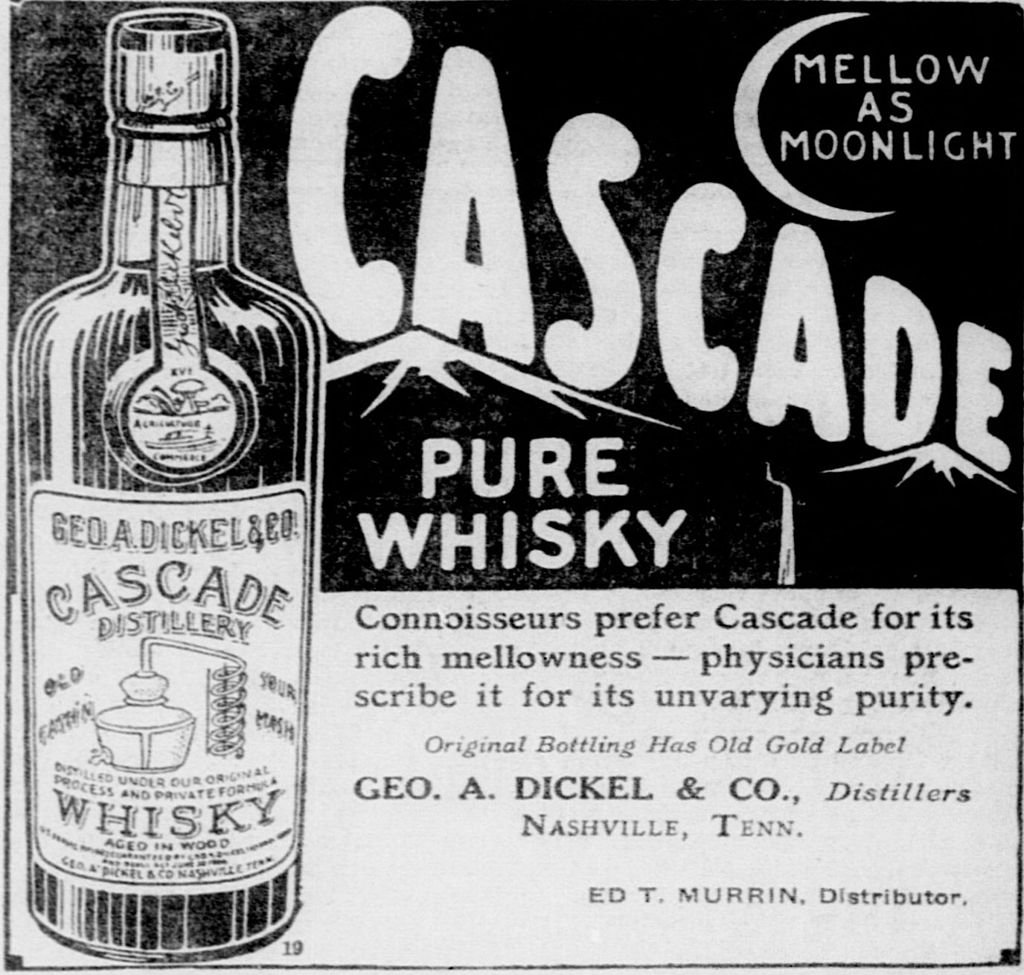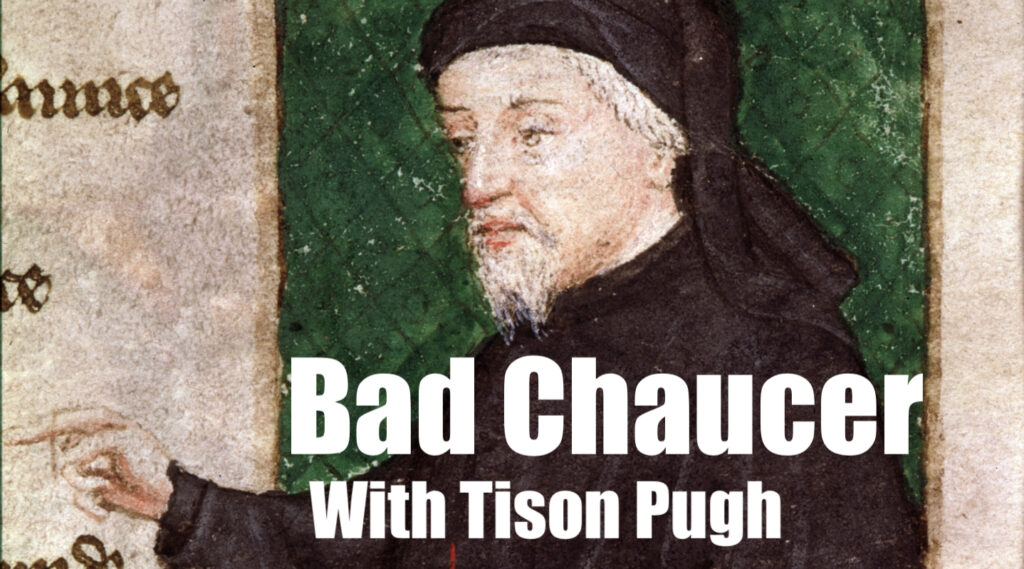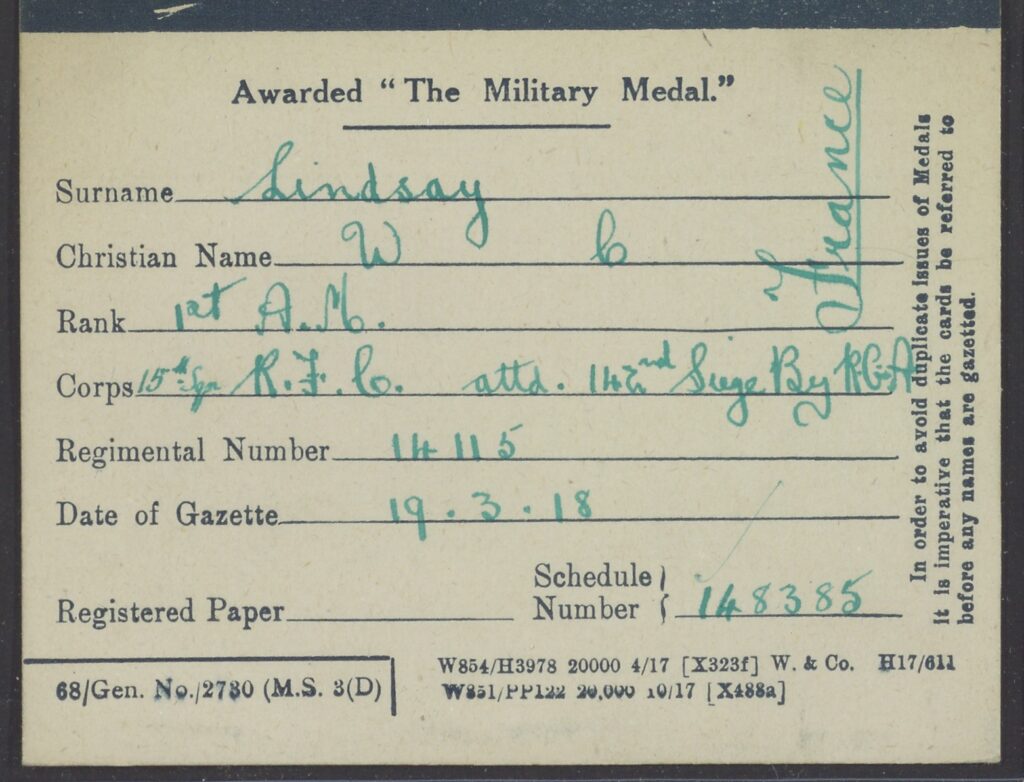A 1915 advert for Cascade Whisky from the Rock Island Argus.
Nashville
From the 1890s through the tumultuous years leading to Prohibition, the city of Nashville was very much like the wild west—a bustling, exciting, changing, and dangerous place. Political debates and rallies were frequently held in the downtown streets with hordes in attendance. Legal fun may have been hard to find in pre-Music City Nashville. Gunfire was frequent. In 1908, a senator and editor of the Nashville Tennessean, Edward Carmack, was shot and killed on Union Avenue after he attempted to shoot a one-time friend and editor of the Nashville American, Duncan Cooper. Their dispute related to prohibition.
From 1890 through 1920, Tennessee was a political war zone between the Wets and the Drys, the anti-prohibitionists and the prohibitionists, with entrepreneur and owner of the George Dickel whisky company, V. E. “Manny” Shwab, as the chief strategist and field general for the Wets. Shwab owned the state’s most valuable distillery producing the “famous” Cascade Whisky, “Mellow as Moonlight”–at the time, a far more popular and well-known whiskey than Jack Daniel’s. The wet and dry battle blew Tennessee politics apart to the point that the Republican and Democrat parties split in half and reformed along prohibition position lines. The anti-liquor proponents were known as “Fusionists”.
Cascade Hollow Seizure
Senator Carmack’s shooting provided the Drys the martyr they needed. In 1909, shortly after the shooting, Tennessee passed Bill #11 banning the manufacture of alcohol. Malcolm Patterson, Tennessee governor and Shwab ally, vetoed the bill, but the legislature overrode his veto. Five days later, in what was the largest federal seizure of any kind, Shwab’s Cascade Hollow Distillery was shut down. Nine thousand barrels of Cascade whisky were seized along with the distillery’s six buildings and 600 acres. The whiskey alone was values at over $30 million in today’s dollars.
Newspapers were unabashedly biased, giving wildly differing “factual” accounts of events. According to reports, Shwab was either “the debaucherer of more young men than any other man in Tennessee” because of his whiskey company and many saloons, or a “one man Tammany Hall”, or “Nashville’s richest citizen” and a philanthropic, consensus building visionary, dragging Tennessee into the 20th century while elevating Tennessee whiskey to a stellar reputation. Newspapers throughout the country and Canada covered the seizure with headlines such as: “Big Still Taken by U.S.”, Chicago Tribune; “Raid on Whiskey”, Vicksburg, Mississippi; “The Cascade distillery is the most valuable property of the kind in the state”, Nashville Banner; “Chattanoogans Think it Was Prompted by Politics”, Chattanooga. To emphasize the importance of the distillery to the state, the Nashville American stated that from 1905-1908, Manny’s Dickel company that distributed Cascade paid one fourth of the taxes paid by all distilleries in middle and west Tennessee combined, including Jack Daniel’s.
Tennessee Prohibition was not to go into effect until January of the next year, 1910. The alleged violation was tax evasion due to the common practice known as “equalization of wantage”. During the process of aging whiskey in wooden barrels, evaporation occurs. The government required payment of tax on a minimum of 40 gallons per each 50 gallon barrel, even if there were only 35 gallons remaining after evaporation. To avoid paying tax on non-existent whiskey, distillers would take whiskey from barrels holding more than 40 gallons and add it to barrels containing less. The seizure occurred on Thursday, April 1. Through Manny’s connection with the U.S. Attorney General and some powerful Tennessee allies, the distillery was back in Shwab’s hands the following Monday after posting a bond of $275,000 ($8.4 million today).
Bill #11 did not stop the fight. In 1911, thirty four Republican legislators retreated to Decatur Alabama to deny a quorum to vote on legislation—referred to by them as “the liquor election bill”—that would lead to the reversal of Tennessee’s prohibition on distilling. Shwab had assured the bill’s successful passage allegedly by bribing six Republicans. The April 12, 1911 Nashville Banner headline exclaimed “High-Handed Corruption Alleged in Election Bill Fight…Member or Members Have Been Fixed—Money Furnished by Well Known Liquor Dealer.” The allegation was that the Shwabs had furnished over $20,000 ($660,000 today) to “fix” votes. With the legislative process ground to a halt, the April 14, 1911 Memphis Commercial Appeal opined that “the whole public machinery of the state would be clogged so long as the present situation exists.”
And the “present situation” persisted. The May 4th Tennessean deemed Prohibitionist legislators who were supporting the bill, “arrant hypocrite and… mutton-headed ignoramuses” who have “…an inherited affliction which cannot be cured and for which [they] should be pitied, and not censured.” So much for objective journalism. By June 26, the three-month stand-off must have finally subsided as the legislature had a quorum to pass resolution #57 calling for an investigation into the slush-fund allegations as well as new allegations against several legislators. In July, Governor Ben Hooper vetoed the joint resolution. The fight persisted.
Boss Crump and Liquor by the Drink
In October 1913, Governor Hooper called a special and highly contentious legislative session of both houses. The issues were the shipping of liquor into Tennessee from other states and the “Nuisance Bill”. The bill would “declare a saloon, gambling den, bawdy house, or any other business the conduct of which is a violation of the law, a public nuisance.” Similar to modern day anti-abortion bills considered by some states, any five qualified voters could shut a business down in an effort to get around public officials who were seen as ignoring the activity. For example, Shwab was consistently accused of using his influence to avoid raids on his saloons as well as influencing legislation and dictating nominees for office.
Thirty-nine year old mayor of Memphis, E.H. “Boss” Crump, went to Nashville to fight and alter the legislation and to secure Manny’s support. Crump would be a major figure in Tennessee politics for the next twenty years, very much following in Shwab’s footsteps. He wanted to manipulate the language of the law so eleven of his wards could sell liquor by the drink. Manny was all for it, as it would allow liquor to be sold in the major cities. Papers referred to the issue as a “battle royal”. According to the Knoxville Journal:
Backing up mayor Crump and his henchmen was V. E. Shwab the wealthiest whiskey man in Tennessee the owner of Cascade, and the Gibraltar of the whiskey interests in Tennessee.…He was seen to talk with various members of the house and senate on the floor of the Maxwell (hotel) lobby this morning…Some little excitement went the round in whispers this morning when it got started that the whiskey interests are threatening the weak-kneed fellows.
Indicative of the atmosphere in Nashville, the Bristol Courier declared “The Tennessee Legislature has been in session and nobody has been killed, not even Boss Crump”. The lobbyists were accused of “threatening dire consequences to those who have accepted courtesies from them.” But the Crump and Shwab forces were unsuccessful. On October 14, 1913, the Tennessean exuberantly announced “John Barleycorn Knocked Out in Second Round”, declaring “Nashville Arid”. Shwab moved operations to Louisville to continue distilling and selling his renowned Cascade internationally until federal prohibition in 1920.
Clay Shwab’s book, Manny Shwab and the George Dickel Company, is available here: Amazon US | Amazon UK


